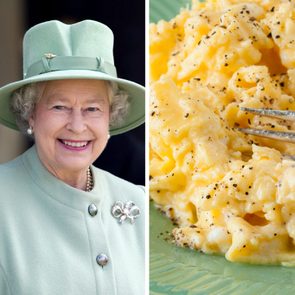We Tried Gordon Ramsay’s Scrambled Eggs Recipe—Here’s What We Thought
Updated: Aug. 31, 2023

Forget everything you know about scrambled eggs. Gordon Ramsay's method is the only one you'll need from now on.
Anytime Gordon Ramsay tells us to do something, our typical response has always been, “Yes, Chef!” (It’s how we learned these five cooking lessons from Gordon Ramsay.)
However, we had to pause when we stumbled upon the official Gordon Ramsay scrambled eggs recipe. How different could his method and results really be? Could they really be worth the effort and hype?
Well, throw out everything you think you know about making scrambled eggs. His version allegedly puts even Dolly Parton’s scrambled eggs to shame and is actually easier and more forgiving than Ina Garten’s scrambled egg recipe.
How are Gordon Ramsay’s scrambled eggs different?
Chef Ramsay’s recipe differs from other scrambled egg recipes in a few key ways. First, according to Ramsay, the right type of whisk to use for eggs is no whisk at all. In his recipe, the eggs are not whisked prior to adding them to the skillet. Instead, they are cracked whole into a cold pan with butter and folded together using a rubber spatula only once they are placed over the heat.
Another key difference? Just like on his hit cooking show, Hell’s Kitchen, Ramsay isn’t afraid to turn up the heat. Unlike other scrambled egg recipes that call for cooking the eggs over low to medium-low heat, Ramsay’s eggs are cooked in alternating intervals on and off a burner set to high heat and stirred constantly.
This method (combined with a tiny dollop of crème fraîche) is said to help prevent the eggs from overcooking and give them an ethereal texture that is both creamy and fluffy.
Let’s see if that’s the case as we put his recipe to the test.
Gordon Ramsay’s scrambled eggs recipe
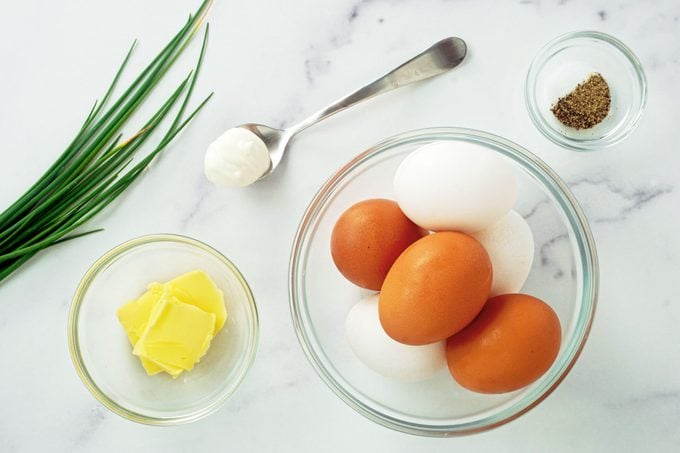
Ingredients
- 6 cold eggs
- 1 Tbsp. butter
- Salt and pepper, to taste
- 1 tsp. crème fraîche, optional
- Chives, for garnish
Directions
Step 1: Combine eggs and butter
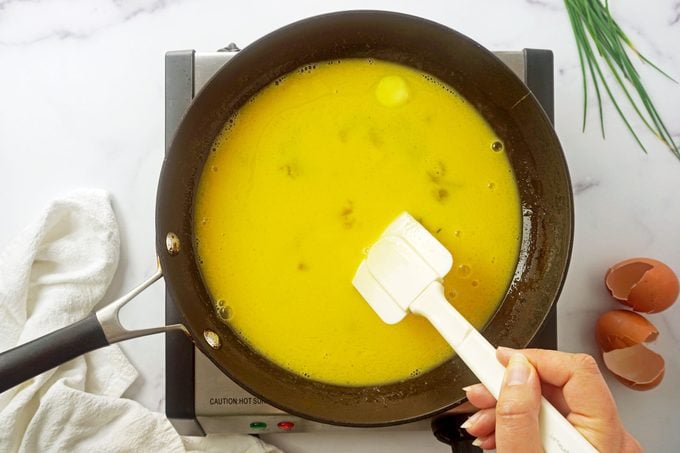
Combine the eggs and butter in a deep saucepan or skillet.
Editor’s note: Gordon recommends following a two-to-one egg-to-butter ratio for smaller batches.
Step 2: Heat on, heat off
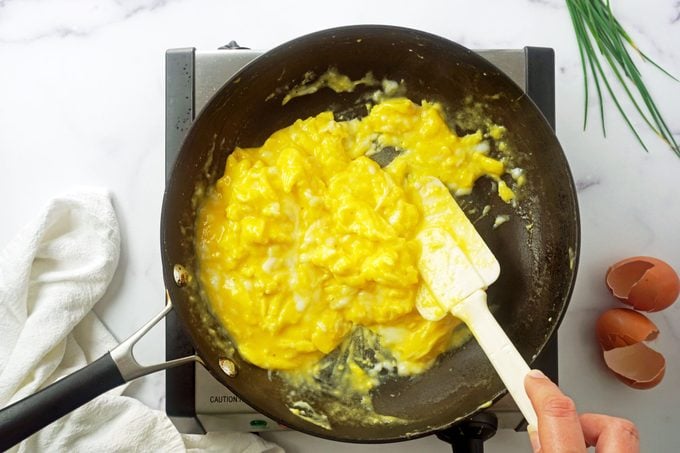
Place the pan over high heat and then begin to stir continuously with a rubber or silicone spatula, scraping the bottom of the pan as you work. After 30 seconds, remove the pan from the heat and stir for 10 seconds. Return the pan to the burner and repeat this process three to four times, for about three minutes total.
Step 3: Add herbs and crème fraîche
During the final stir, season the eggs with salt and pepper to taste, and stir in the crème fraîche and chives.
Step 4: Serve and devour
Plate the eggs and garnish with additional chopped chives. Serve warm with your favorite toast. Enjoy!
Here’s what I thought
If you think all scrambled egg recipes are created equal, these will change your mind with just one bite. Chef Ramsay’s scrambled egg recipe proves that technique matters in even the most basic recipes. His method of slowly cooking the eggs over intervals of high heat gave the eggs a supremely fluffy texture, and the butter combined with the dollop of crème fraîche gave them the perfect amount of indulgent creaminess. This will, hands down, be my new go-to method for preparing fluffy scrambled eggs.
Tips for making scrambled eggs like a pro
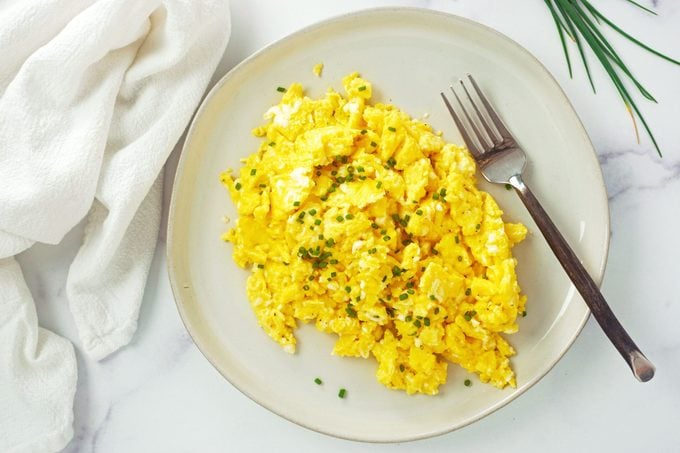
Are you a newbie to cooking scrambled eggs? Here are our best tips for getting Gordon Ramsay’s scrambled egg recipe right every time.
- When you salt your eggs matters. Salt causes a chemical reaction to occur with the egg’s proteins. To achieve the same texture as Gordon Ramsay, you’ll want to salt your eggs only during the final minute of cooking. Conversely, other scrambled egg recipes will suggest salting eggs before they are cooked and yield slightly different results.
- A cold pan and eggs are key. Opt for a cold pan and eggs straight from the fridge. Starting cold allows both the pan and eggs to heat more slowly, which helps ensure the eggs do not cook too quickly or unevenly.
- Don’t skip the fat. A bit of butter prevents your eggs from sticking to the pan and enriches the eggs with fat to make them melt-in-your-mouth tender.
- Don’t walk away. Keep an eye on your eggs for the final round of cooking, particularly if you prefer a softer scramble. The amount of time it takes for scrambled eggs to go from perfect to overcooked is literally seconds, so be sure to remove the eggs from the hot pan the moment they reach your desired level of doneness.



















